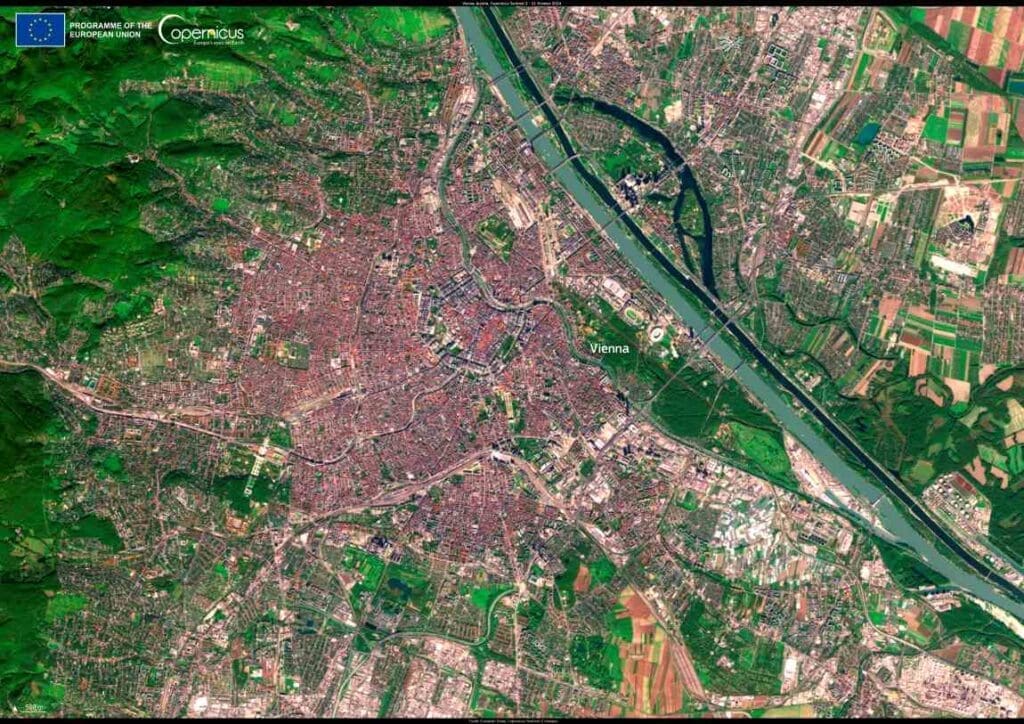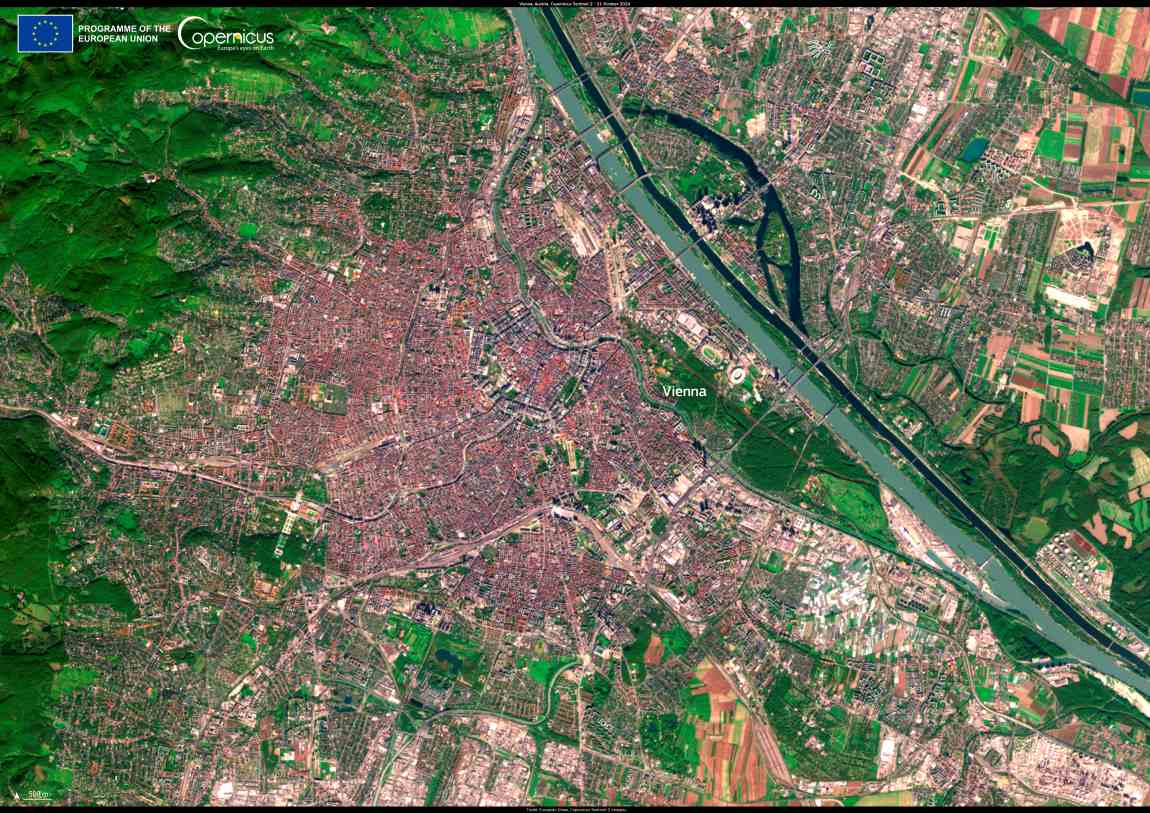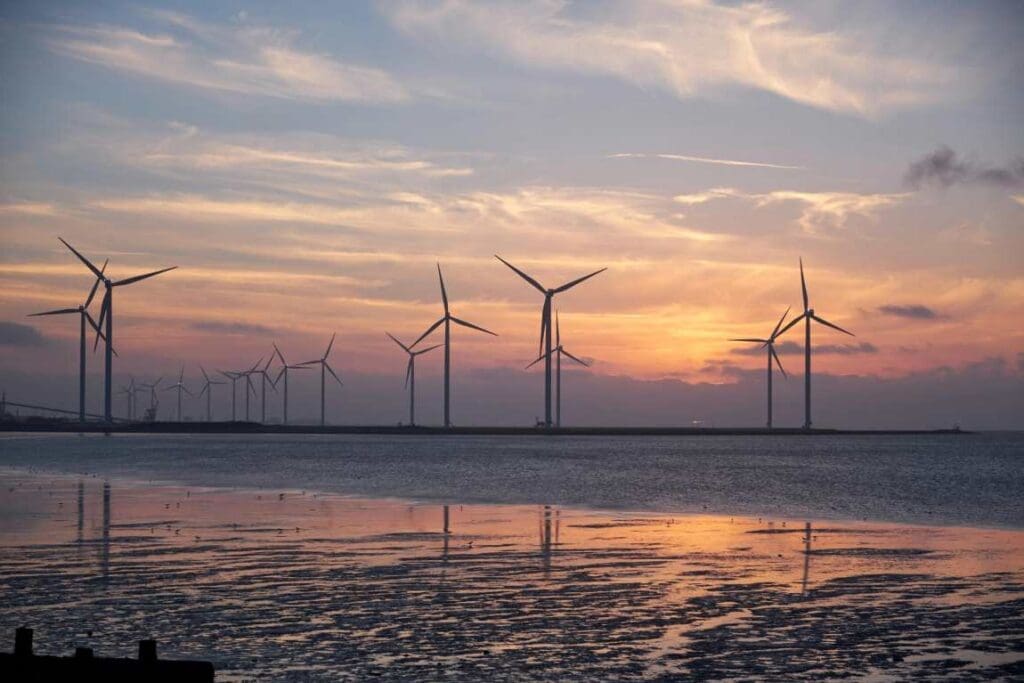Austria, EU – This Copernicus Sentinel-2 image acquired on 21 October 2024 shows Vienna, Austria, which has been voted the most livable city in the world.
This rating is partly due to the city’s accessible public transit system. Three out of ten people in Vienna use public transport, while over a third commute by walking.

In 2022, 792 million passengers rode the Wiener Linien, or Viennese Lines. Of the city’s roughly two million residents, around half of them hold an annual transit pass, which costs the equivalent of one euro per day. As part of the Viennese government’s plan to make the city climate-neutral by 2040, it will expand the public transport network to accommodate more passengers and reduce CO2 emissions.
Open data from the Copernicus Sentinel satellites and services provides authorities with important information on the state of implementation of urban development policies.
Featured image credit: European Union | Copernicus Sentinel-2 imagery




